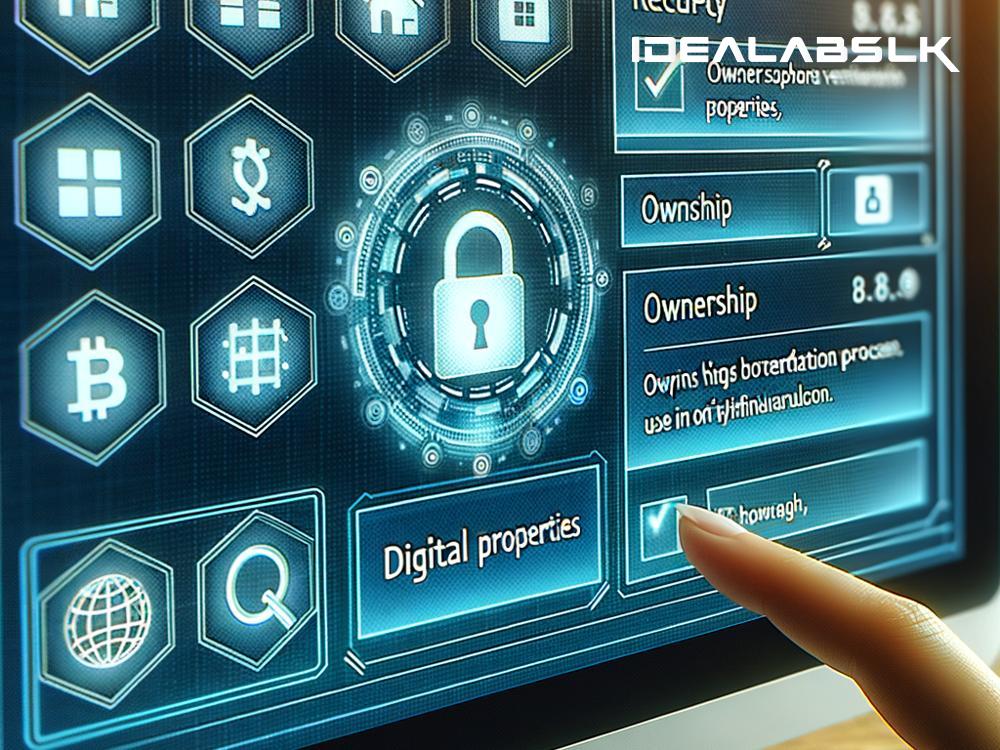Title: Exploring the World of Blockchain-Powered Real Estate: A Simple Guide
In today's fast-paced world, technology is revolutionizing how we do just about everything, from shopping to banking, and even how we own property. One of the most exciting developments in recent years is the emergence of blockchain-powered real estate ownership platforms. These platforms are changing the game for property buyers, sellers, and investors, making the process more accessible, transparent, and secure than ever before. But you might be wondering: What exactly is blockchain, and how does it apply to real estate? Let's dive in and simplify these concepts.
The Basics of Blockchain
First, let's break down what blockchain is. Imagine a digital ledger that's open for everyone to see. This ledger records all transactions made with a digital currency, like Bitcoin. But here's the kicker: once a transaction is recorded, it can't be changed or deleted. This makes blockchain incredibly secure and trustworthy. Now, think about applying this technology to real estate transactions. It means every sale, every deed transfer, and every mortgage agreement can be recorded in a way that's transparent and tamper-proof.
The Rise of Blockchain Real Estate Platforms
Blockchain real estate platforms are emerging as a new way to buy, sell, and invest in property. These platforms use blockchain technology to streamline the process, eliminate many traditional hurdles, and offer several exciting advantages over the conventional system. Let's explore what makes these platforms stand out.
Transparency and Security
One of the most significant benefits of using blockchain for real estate transactions is the level of transparency and security it provides. Every transaction on a blockchain is verified by a network of computers and is visible to everyone involved. This means there's a detailed, immutable record of every property's history, from its construction to its most recent sale. This transparency gives buyers and sellers unprecedented insight and assurance in their transactions.
Speed and Efficiency
The traditional process of buying or selling a property can be painfully slow and filled with paperwork. Blockchain technology simplifies this by digitizing and automating many steps of the process. Smart contracts, self-executing contracts with the terms of the agreement directly written into code, can instantly and automatically process transactions once conditions are met, significantly reducing the time and expense involved.
Lower Costs
By streamlining the transaction process and eliminating many intermediaries, blockchain platforms can significantly lower the costs associated with real estate transactions. Fees for brokers, lawyers, and banks can quickly add up in traditional real estate deals. Blockchain's ability to automate and secure transactions from end to end can reduce or even eliminate many of these expenses.
Real-World Applications
Several blockchain real estate platforms are already making waves in the industry. Some platforms focus on enabling direct property sales and purchases, while others allow for fractional ownership of real estate, opening up property investment to those who might not have the substantial upfront capital typically required.
Here’s how it works: Instead of buying a whole property, investors can purchase a fraction of a property, similar to buying stocks in a company. This lowers the entry barrier for real estate investment and provides a more flexible way to build a diverse investment portfolio.
Challenges and Considerations
While the promise of blockchain real estate platforms is undoubtedly exciting, there are challenges to overcome. Regulatory hurdles, for instance, can vary greatly from one jurisdiction to another. Also, widespread adoption depends on the willingness of all parties to trust and understand this new technology. Education and legislation will play critical roles in the successful implementation of blockchain in real estate.
Looking Ahead
The future of blockchain-powered real estate ownership platforms looks bright. As the technology matures and more people become familiar with the benefits it offers, we can expect to see more widespread adoption. For buyers, sellers, and investors, blockchain could mean faster, cheaper, and more secure real estate transactions. And as the world becomes ever more digitized, the integration of technologies like blockchain in real estate signifies a significant step forward in how we manage and invest in property.
In conclusion, blockchain real estate platforms are not just a fleeting trend; they represent a foundational shift in property transactions. By harnessing the power of blockchain, we're not only streamlining processes but also democratizing access to real estate investment. As we move forward, embracing these new technologies will be key to unlocking the full potential of what our digital future holds for real estate.

